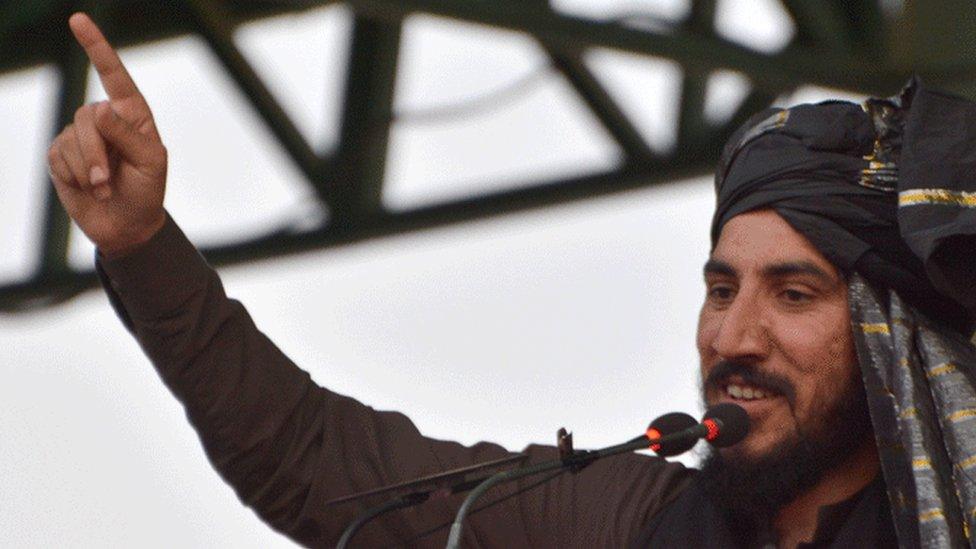Manzoor Pashteen: Activist who dared to challenge Pakistan army held
- Published
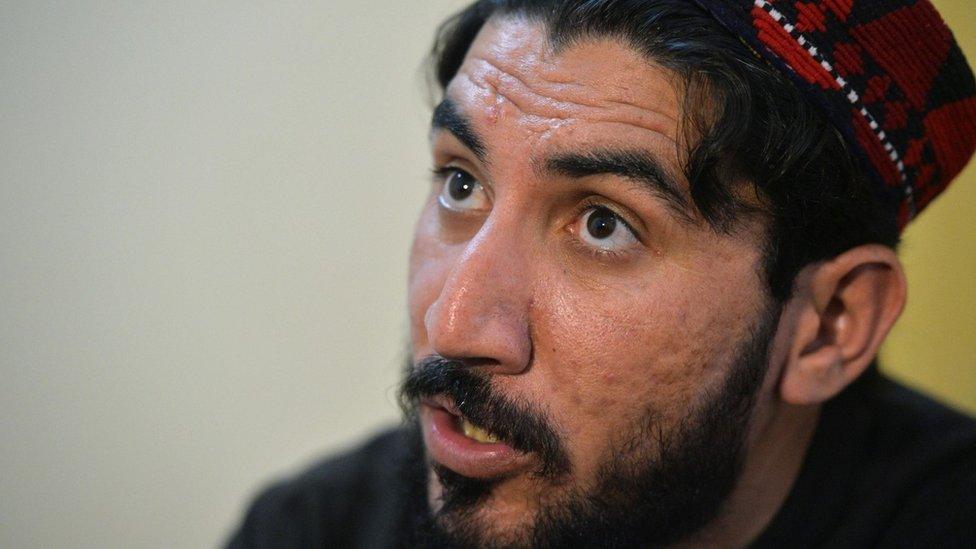
Pashtun Protection Movement leader Manzoor Pashteen has helped publicise rights abuses
The man leading protests accusing Pakistan's army of human rights abuses has been arrested for alleged criminal conspiracy and sedition.
Manzoor Pashteen was taken into custody in Peshawar along with nine others from his Pashtun Protection Movement.
Mr Pashteen has drawn tens of thousands to rallies in cities around Pakistan.
A fellow protest leader said he was being punished for simply demanding human rights. The powerful military, unused to criticism, denies wrongdoing.
Mr Pashteen, a charismatic former veterinary student who shot to prominence two years ago, has become the face of the Pashtun Tahaffuz (Protection) Movement (PTM), in a country where few openly challenge the military.
A number of cases highlighted by the PTM and investigated independently by the BBC came to light in a report last year.
"It has taken us almost 15 years of suffering and humiliation to gather courage to speak up, and to spread awareness about how the military trampled our constitutional rights through both direct action and a policy of support for the militants," Manzoor Pashteen told the BBC.
The non-violent protests began over the alleged extra-judicial killing of a young man of ethnic Pashtun heritage by police in Karachi.
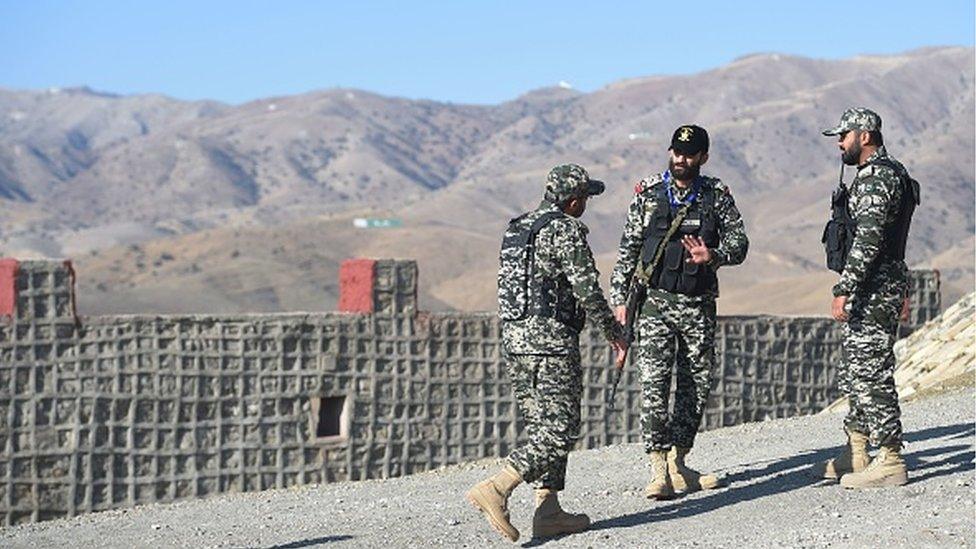
Pakistan's army denies abuses have taken place, despite compelling evidence to contrary
The movement then expanded, demanding accountability from Pakistan's army for alleged human rights abuses committed against Pashtuns during the war against Islamist extremists in the country's north-west.
Pashtuns make up the majority of the population along the border with Afghanistan. The protests, which have at times drawn tens of thousands of demonstrators, have rattled the military.

A protest that threatens army power
By Abid Hussain, BBC Urdu in Islamabad
Since January 2018 Manzoor Pashteen and his movement have become the most significant challenge to the military.
Historically in Pakistan such movements have often fizzled out or been co-opted by the state - but the PTM has grown and grown in strength. All the while its 27-year-old leader with his trademark red cap has steadfastly maintained a modest lifestyle - he doesn't even have a security detail to speak of.
The state seems to have been unsure how to act against him, and the decision to detain him appeared sudden. Charges were laid on 21 January, but it took a week to make the arrest.
Almost laughably, the reason cited for the move is him speaking in an insulting manner about Pakistan and refusing to accept the constitution, when he has often stressed in his speeches the need to uphold the law.
Now the state has finally made its move, how will the PTM respond? Manzoor Pashteen ensured that while he led the movement, no violence took place. But will his supporters now show the same discipline?

Manzoor Pashteen has been accused of "hate speech" and sedition among other offences. The latter carries a possible life sentence.
He was remanded in police custody in Peshawar for 14 days but is expected to be taken to appear before a magistrate in Dera Ismail Khan, some 300km (186 miles) to the south, where charges against him have been filed.
His fellow protesters have demanded his immediate release. Another PTM leader, MP Mohsin Dawar, urged supporters to remain calm in response to the arrest.
Allow X content?
This article contains content provided by X. We ask for your permission before anything is loaded, as they may be using cookies and other technologies. You may want to read X’s cookie policy, external and privacy policy, external before accepting. To view this content choose ‘accept and continue’.
Allow X content?
This article contains content provided by X. We ask for your permission before anything is loaded, as they may be using cookies and other technologies. You may want to read X’s cookie policy, external and privacy policy, external before accepting. To view this content choose ‘accept and continue’.
This is the first time Manzoor Pashteen has been held, and why the authorities chose to detain him now is unclear.
The authorities have repeatedly arrested other PTM leaders and activists since the movement came to prominence. Last year Mohsin Dawar and his fellow PTM member of the National Assembly, Ali Wazir, were detained for four months after a deadly clash in Waziristan.
A media blackout has ensured the PTM's peaceful rallies stay off front pages and TV bulletins - although the movement has been successful in getting its message out via social media.
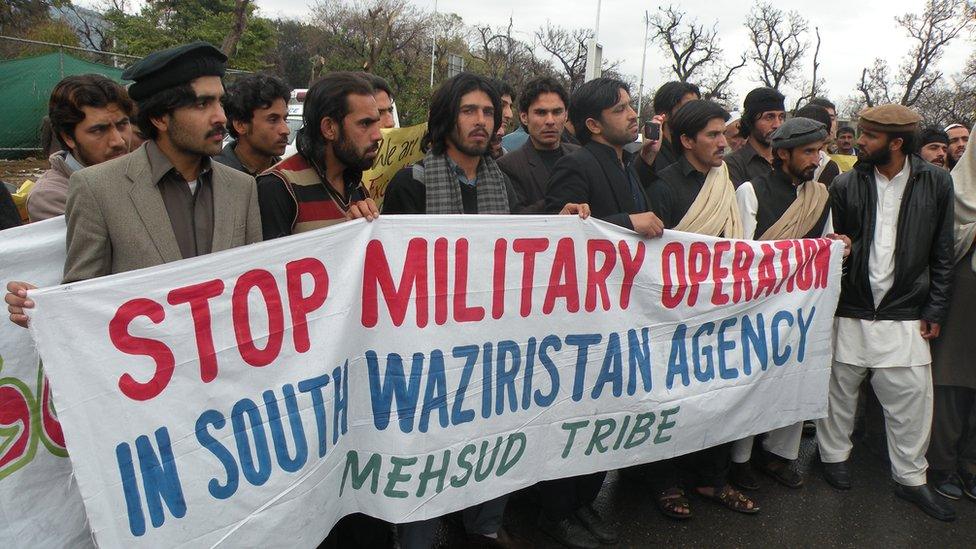
People in the tribal areas have protested - but they are still waiting for justice
According to authorities and independent research groups, militant violence since 2002 has forced more than five million people in Pakistan's north-west to leave their homes to seek refuge either in government-run refugee camps or rented houses in peaceful areas.
There are no official figures of the total death toll of this war but estimates from academics, local authorities and activists put the number of civilians, militants and security forces killed at well over 50,000.
Many see the PTM as breaking new ground in the political landscape of a country where proxy wars have disenfranchised large populations not only in tribal areas and the north-west, but also in Balochistan and other parts of the country.
- Published2 June 2019
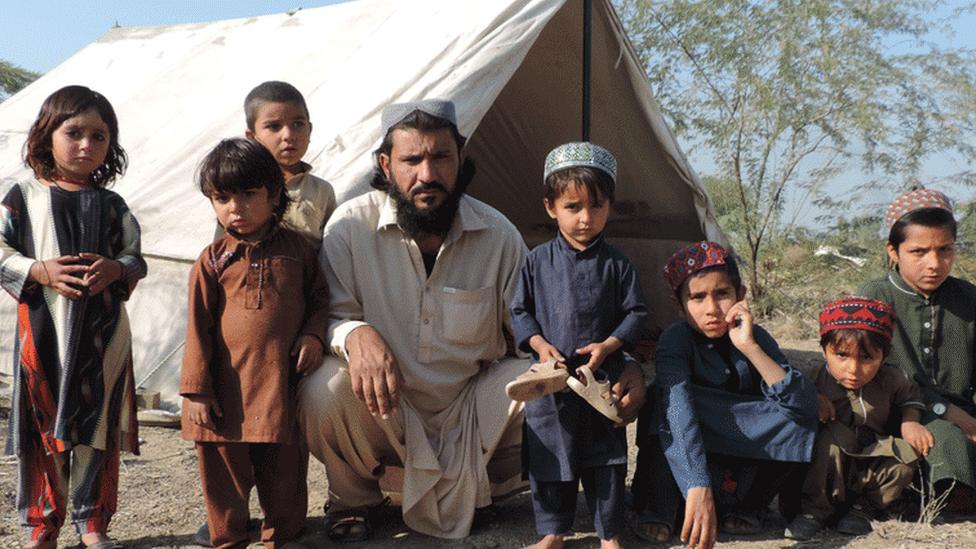
- Published23 April 2018
